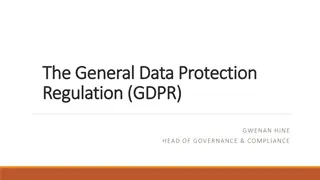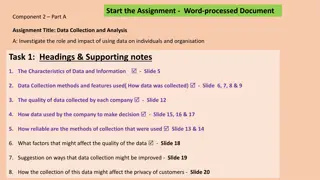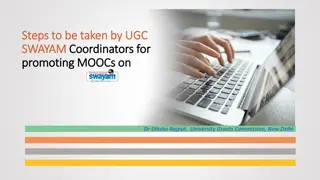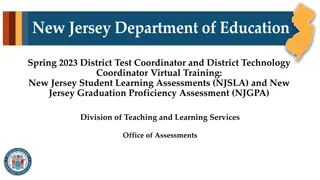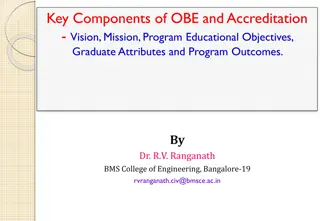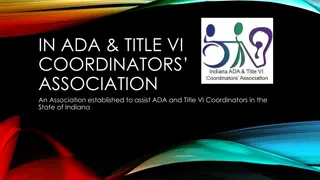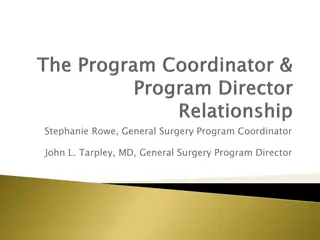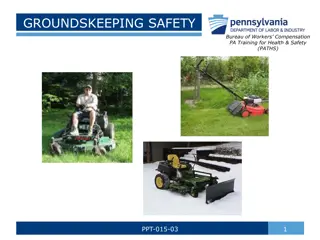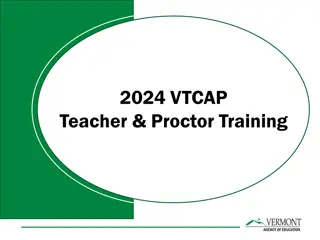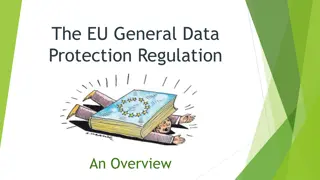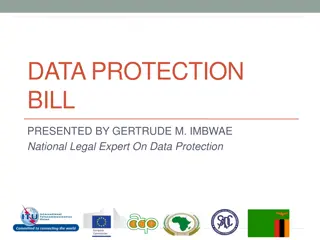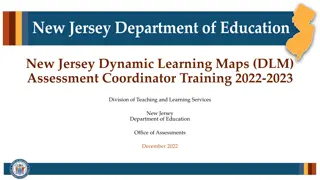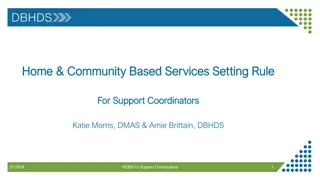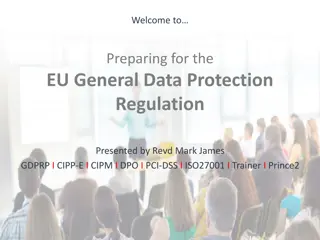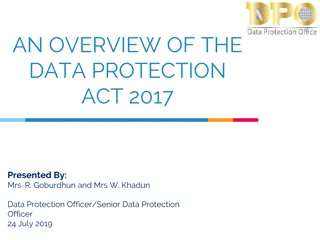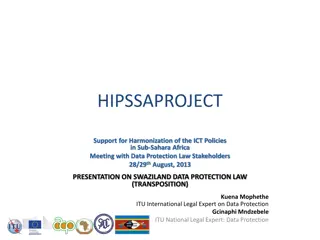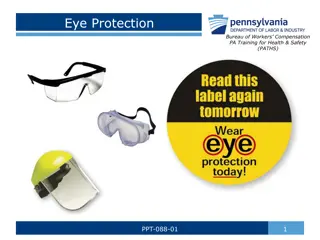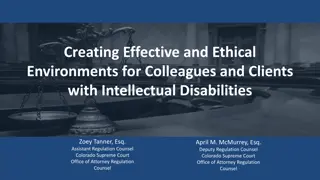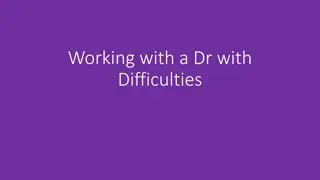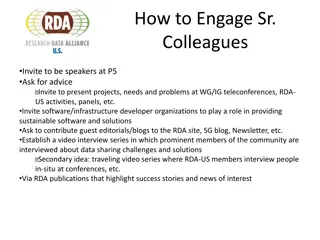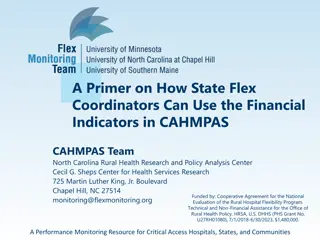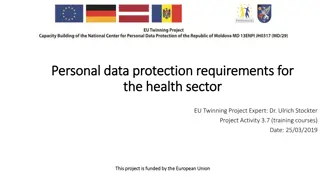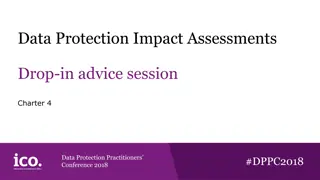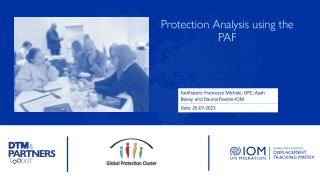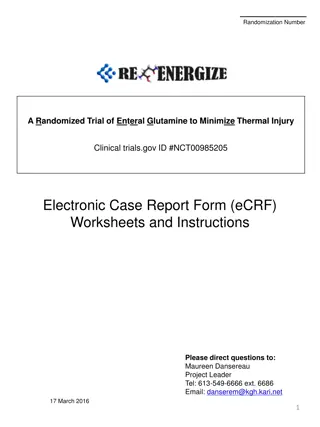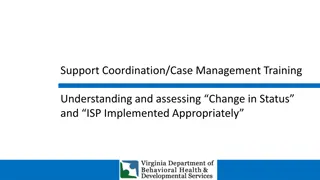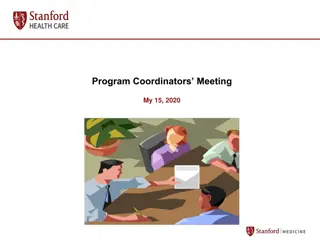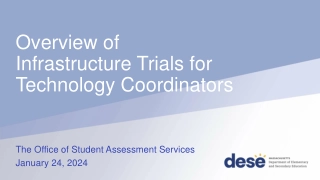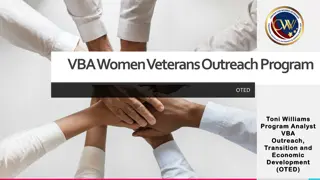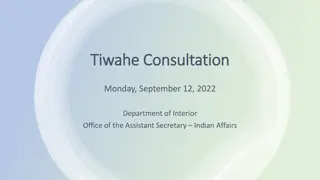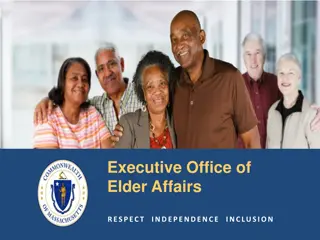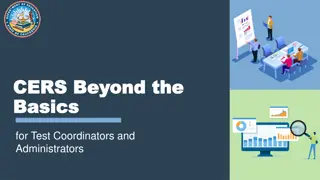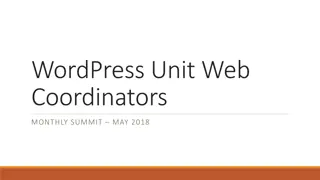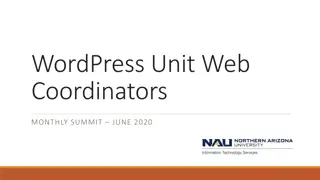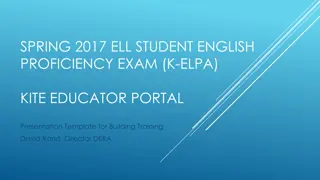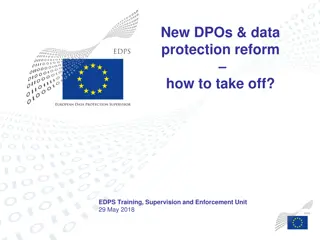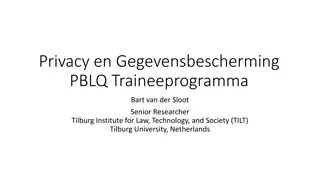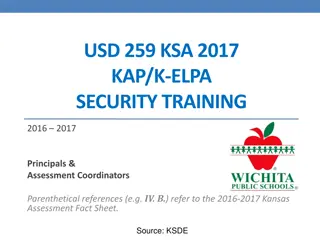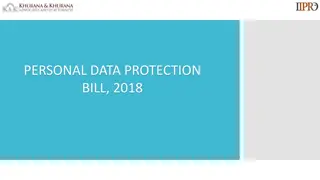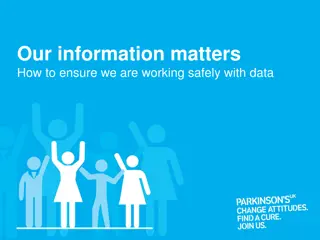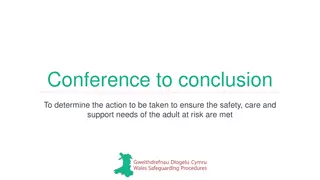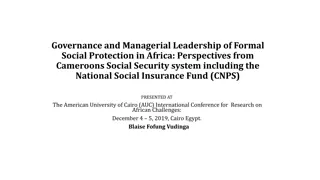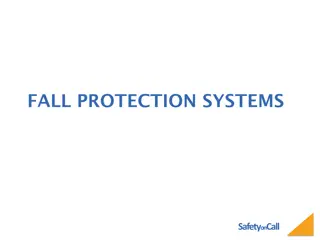Responsibilities of Data Collection Coordinators and Protection Colleagues
This comprehensive guide outlines the responsibilities of Data Collection Coordinators and Protection Colleagues in supporting enumerators to safely respond to incidents and disclosures related to Gender-Based Violence (GBV), trafficking, and Child Protection (CP). It emphasizes the importance of establishing referral pathways, providing training to focal points and enumerators, and addressing gaps in services. Additionally, it highlights the critical need to prevent sexual exploitation and abuse (SEA) within the humanitarian sector, stressing the obligation to report any incidents of SEA while maintaining a balance between confidentiality and mandatory reporting.
Download Presentation

Please find below an Image/Link to download the presentation.
The content on the website is provided AS IS for your information and personal use only. It may not be sold, licensed, or shared on other websites without obtaining consent from the author. Download presentation by click this link. If you encounter any issues during the download, it is possible that the publisher has removed the file from their server.
E N D
Presentation Transcript
Responsibilities of Data collection Coordinators and Protection colleagues to support enumerators safely respond to incidents disclosures Responsibilities of Data-Collection Coordinator Protection/GBV/trafficking & CP colleagues Responsibilities of What if ? What if ? Questionnaires should NEVER include questions about violence. Provide the public version of the Referral Pathway to Data Collection Coordinator What if there are no services in these areas? ARE YOU SURE? In most countries at least some services are present, run by authorities, other UN and NGOs and local civil society Where a Referral Pathway is not available, provide the contact details of available services in the area (as a minimum GBV, CP and Protection actors, Healthcare centre, Police ) to Data collection coordinator Discuss and agree with Protection, GBV/CP/Trafficking colleagues : Raise the issue to senior management and lobby through Protection Cluster* (or WG) and Inter-Cluster (or Inter-Sectoral) Coordination Group. * What enumerators should do if somebody discloses a GBV incident, a Trafficking incident involving an adult *https://www.globalprotectioncluster.org/_assets/files/tools_and_guidance/essential- protection-guidance/hc-hct-centrality-of-protection-in-practice-note.pdf Provide and update contact list of GBV Focal Points to Coordinator and TRAIN Focal Points on how to guide enumerators when contacted What if we do not have IOM protection/GBV/CP Focal Points in the country? Reach out to Clusters/WG/AoRs What enumerators should do if somebody discloses a GBV, Trafficking incident involving a child or another type of CP incident Enlist the support of senior management in this cooperation Reach out to the Regional/HQ colleagues for advice Train enumerators on how to respond to protection disclosures Acquire (from Protection) and share with enumerators the public version of the Referral Pathway availablein the areas and list of Protection, GBV, CP Focal Points What if there is no referral pathway? Raise the issue with the emergency coordinator, Protection colleagues or senior management Support enumerators when they contact you Inquire with Protection, GBV, CP or CCCM* sector or other organization/authority: they may have one Where a Referral Pathway is not available, obtain contact details of available services in the area from Protection colleagues (including as a minimum GBV, CP and Protection actors, Healthcare centre, Police ) Obtain contact details of available services in the area from Protection colleagues (including as a minimum GBV, CP and Protection actors, Healthcare centre, Police ) *CCCM Minimum Standard 4.3: Referral pathways Include a session on safely managing Incidents Disclosures in each enumerators training
Your obligations as part of IOM to prevent Your obligations as part of IOM to prevent Sexual Exploitation and Abuse Sexual Exploitation and Abuse All IOM Employees, including protection officers, enumerators and DTM/Data collection coordinators must NOT ENGAGE in SEA What is SEA (Sexual Exploitation and Abuse?) All IOM Employees, including protection officers, enumerators and DTM/Data collection coordinators must REPORT AN INCIDENT Sexual exploitation is any actual or attempted abuse of a position of vulnerability, differential power, or trust, for sexual purposes, including, but not limited to, profiting monetarily, socially or politically from the sexual exploitation of another. DTM/other data collection Coordinators and protection officers, are responsible to facilitate enumerators access to PSEA training and greater awareness of SEA DTM/other data collection Coordinators and protection officers, are responsible to ensure enumerators know how to report and can report Sexual abuse means the actual or threatened physical intrusion of a sexual nature, whether by force or under unequal or coercive conditions How to balance confidentiality and mandatory reporting? How to balance confidentiality and mandatory reporting? Explain to the survivor that if they tell you someone from IOM or another aid worker has hurt them, you have to report what that person has done so he/she can t hurt anyone else Understand that as a humanitarian actor you are inherently in a position of power Explain that information will be shared confidentially and let the survivor decide how much or how little they want to tell you IOM has a Zero ToleranceApproach to SEA Share information about GBV and other services the survivor may need (as seen for GBV, CP and protection disclosures) Ask if the survivor allows you to share their name and contact details with investigators who will receive the report
Dos and Donts for enumerators in case of an incident Disclosure As enumerators, we can experience different situations: how do we act in each situation? Someone tells the enumerator about SOMEONE ELSE who has survived an incident of GBV/CP An incident may not be disclosed but may be WITNESSED by the enumerator. Someone tells the enumerator that THEY have been affected by GBV/CP What should an enumerator do when an incident is WITNESSED BY THEM? What should an enumerator do when a community member says that SOMEONE ELSE has survived a GBV, CP or Trafficking incident? What should an enumerator do when someone says that THEY have experienced a GBV, CP or Trafficking incident? Ensure they are safe and remove themselves from danger Be Prepared: Before you start data collection, have information on response services available (Referral Pathway) but never seek out survivors of GBV, CP or Trafficking incident! Listen: No judgement and no follow up questions; be aware of your own biases and keep neutral body language and expressions. Be honest and gentle tell them that you are not a specialist and can refer to somebody who can help Use ReferralPathway and provide appropriate information on services they can access (tell them it is their choice if they wish to reach out) Keep their Information/ details that they shared Confidential Enumerators can always contact a specialist for advice: IOM or other Protection focal Point in your area Never share details that can identify the survivors Be Prepared: Before you start data collection, have information on response services available (Referral Pathway) Listen: No judgement and no follow up questions; be aware of your own biases and keep neutral body language and expressions. Be honest and gentle tell them that you are not a specialist however there are services that can help Explain to the individual the available services that they could discreetly share with survivor ONLY if safe to do so. Keep their Information/ details that they shared Confidential Never seek out survivors of GBV, CP or Trafficking incident! Enumerators can always contact a specialist for advice: IOM or other Protection focal Point in your area Never share details that can identify the survivor Do not involve themselves or try to manage the situation it may put themselves, the survivor/child, or colleagues at risk If life-threatening and ongoing incident discreetly call Police/Security If the incident that they witnessed has ended follow appropriate reporting procedures (Check with supervisor if unsure) Never Seek out survivors of GBV, CP or Trafficking incident! Enumerators can always contact a specialist for advice: IOM or other Protection focal Point in your area Never share details that can identify the survivor
What should enumerators do if a child discloses a protection-related incident? a child What should enumerators do to safely respond to disclosures of Protection What should enumerators do to safely respond to disclosures of Protection- -related incidents? related incidents? Do Listen, be kind and gentle. No judgement and no follow up questions; Be aware of your own biases and keep neutral body language and expressions. Address urgent basic needs if needed. Remember that the role of an enumerator is to share accurate, up-to-date information on available services and let the survivor make their own choices on what feels safe for them. Seeking services is not always safe for a survivor and could lead to more harm. @CP Minimum Standards Always ensure your safety, the safety of your staff and of the survivor and her/his community Listen attentively to the child, be honest, kind and gentle, be aware of your own biases and keep neutral body language and expressions. Get informed consent if you need to share information with others. Ask Protection focal point for advice when unsure Do NOT Explain that there are specific people who can help; ask the child if you can introduce them to your colleague (if you have the option of a specific child protection colleague there). Look for survivors of GBV or victims of violence Communicate in a public area Advise the child of available services DIRECTLY related to/for children, including CP case workers (IOM or others). Write anything down, take photos or record a conversation Try to resolve a dispute Ask for more details to better understand what happened DO NOT: ask follow up questions; hug/console the child; speak to the caregiver; try and find more information; get your CP colleagues to call the caregivers or try and meet with the child without the child's consent. Try to provide counselling Tell them what to do or give an opinion. Assume you know what someone wants or needs. Some actions may put someone at further risk of stigma, retaliation, or harm Enumerators can always contact a specialist for advice! (IOM or other CP Protection focal Point in your area) Share any information about the story or the person without informed consent Invite others into the discussion Never share details that can identify the survivor Make decisions on behalf of the survivors


